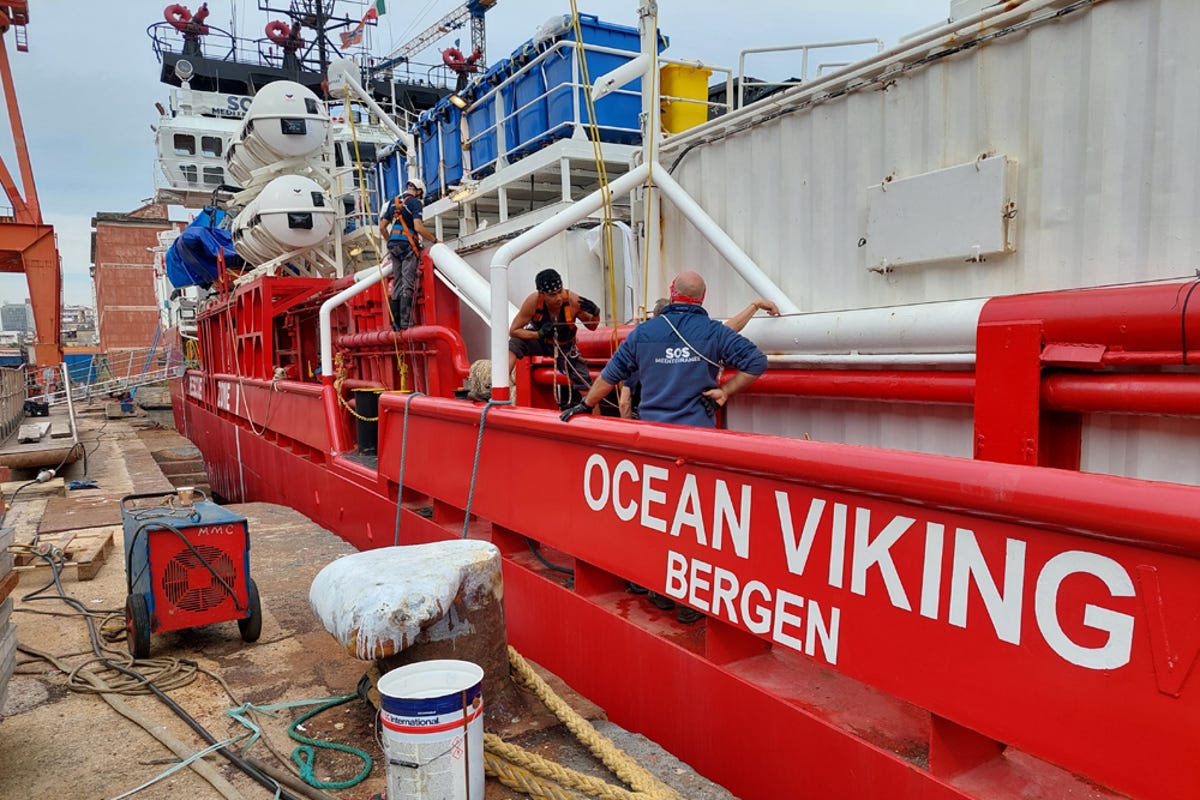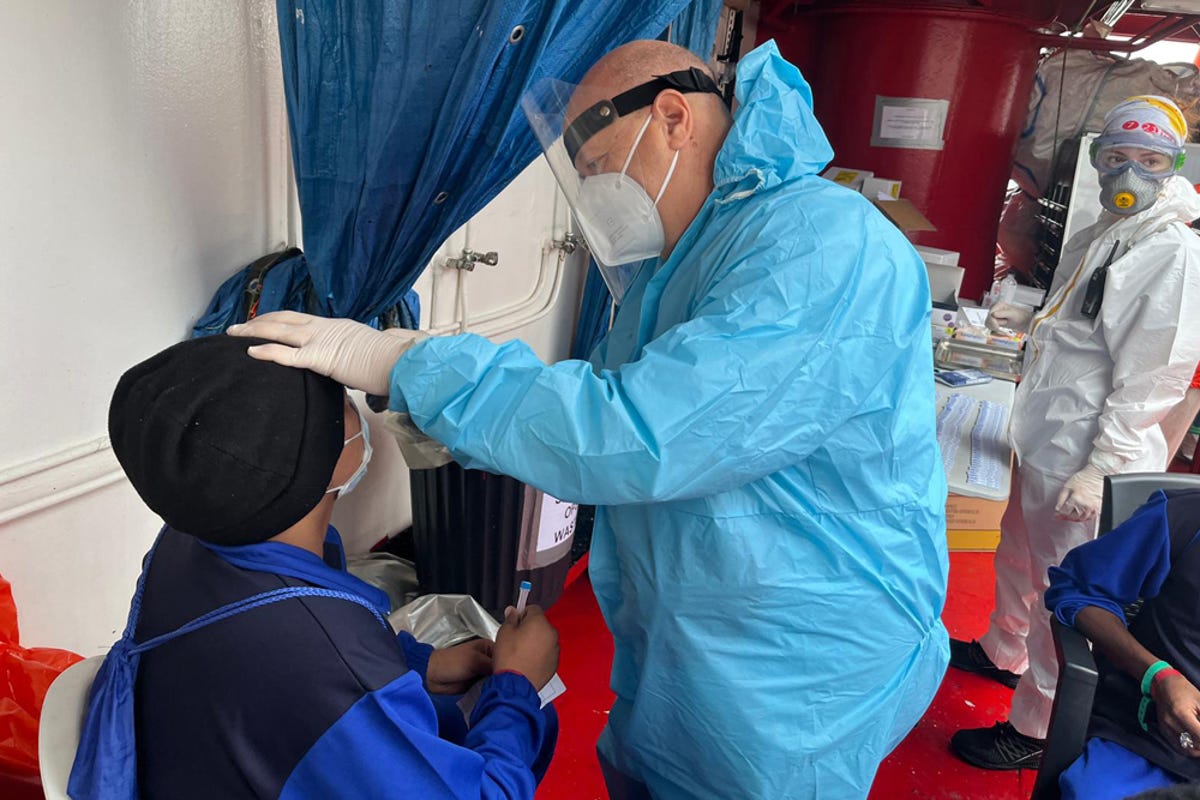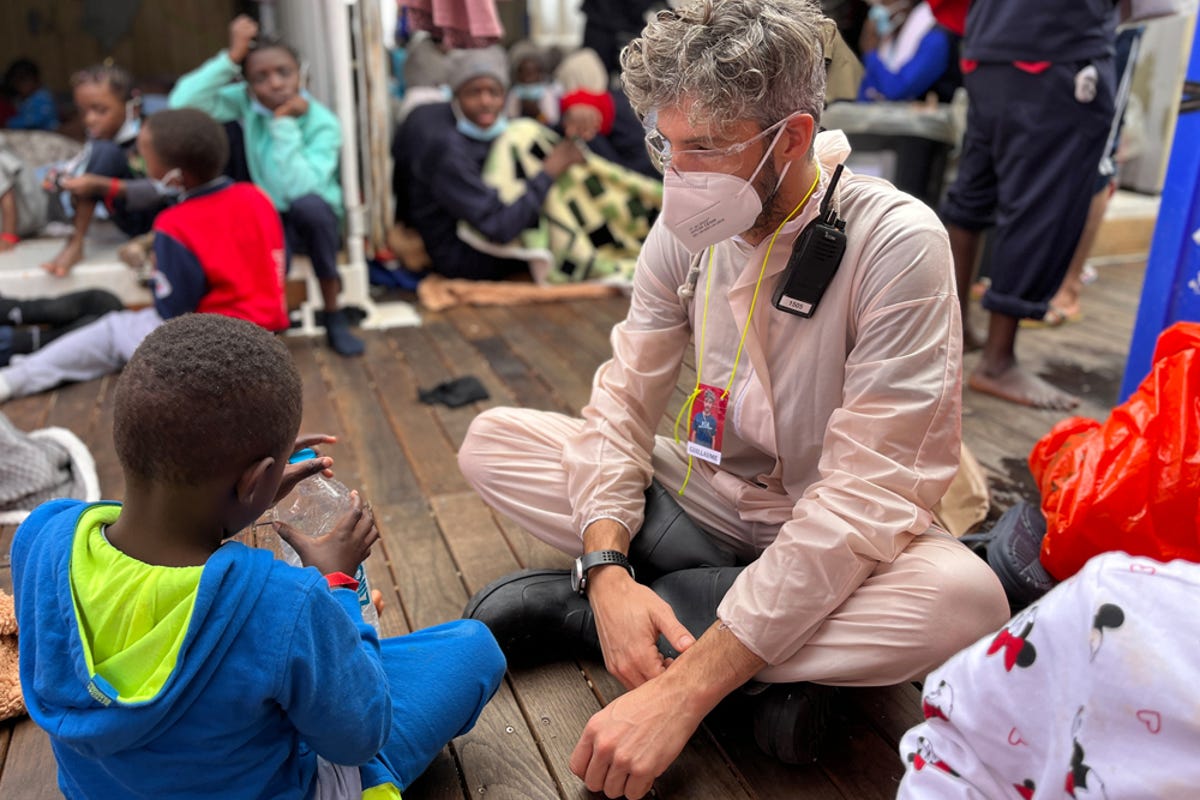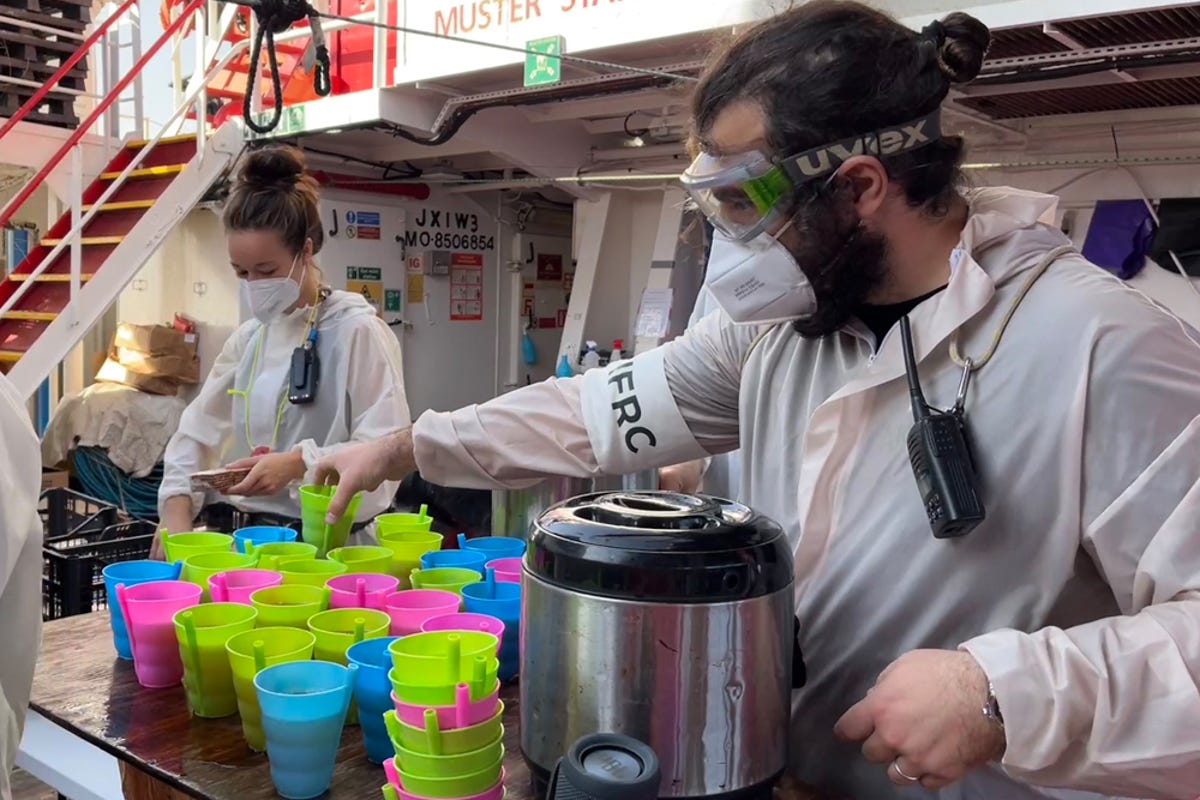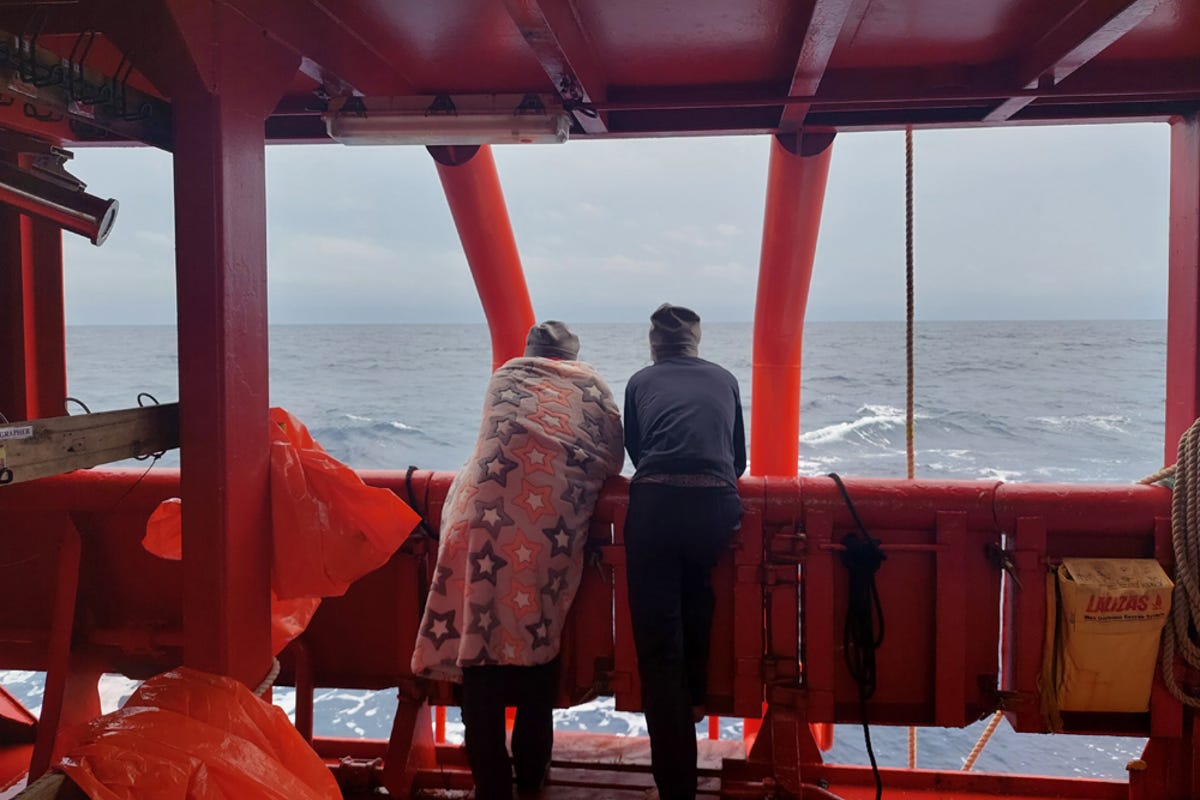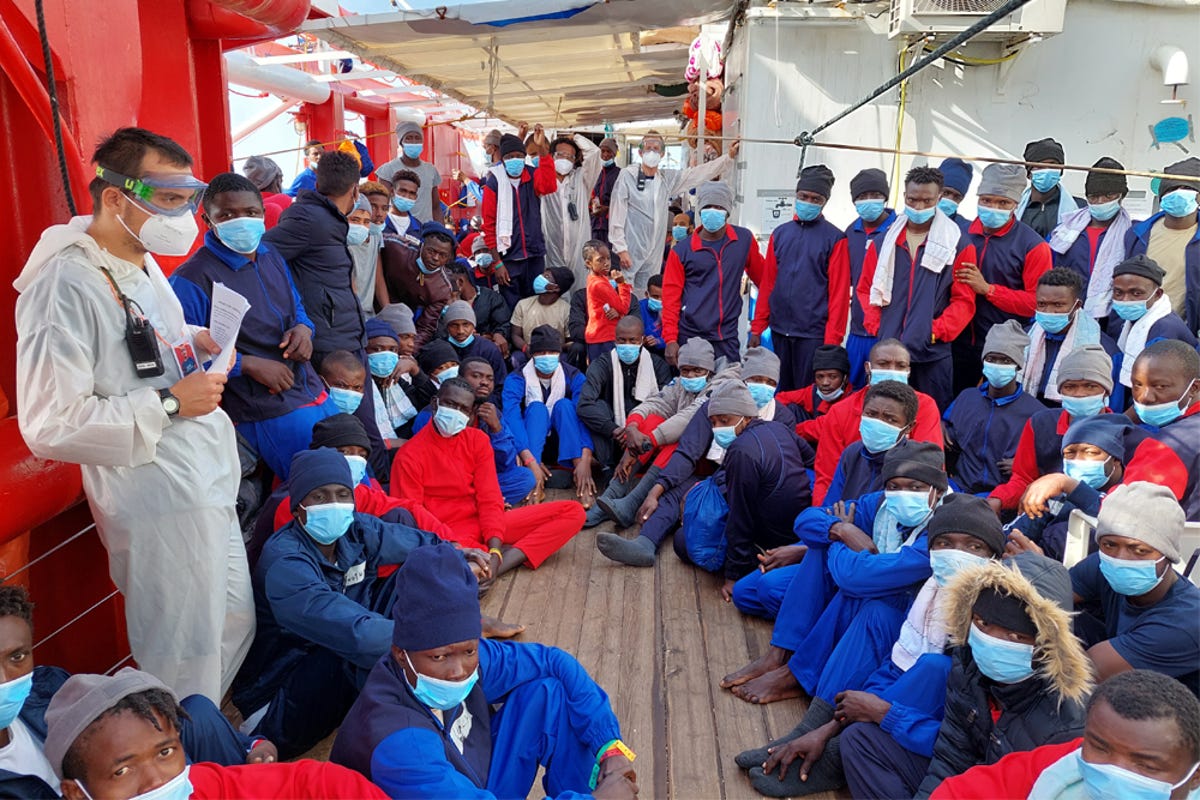The sea rescue imperative
As the COVID-19 pandemic continues to spread relentlessly across countries and continents, the plight of people attempting to escape across the Mediterranean has been all but forgotten.
© SOS MEDITERRANEE / Claire Juchat
As the COVID-19 pandemic continues to spread relentlessly across countries and continents, the plight of people attempting to escape across the Mediterranean has been all but forgotten.
On 22nd of June, after a 3-month suspension due to European COVID-containment measures, the Ocean Viking rescue ship operated by the NGO SOS Méditerranée could finally head back into the central Mediterranean.
Resuming search and rescue operations during a pandemic required protocol changes, extra security precautions – such as a 14-day quarantine for all crew members before embarking – and the establishment of an outbreak management plan, with booths set up for the isolation of any patients, and areas marked out to limit people mixing.
Only three days at sea after leaving the port of Marseille, the Ocean Viking started to pick up migrants in four separate rescue operations that continued over the following five days, bringing a total of 181 people safely on board.
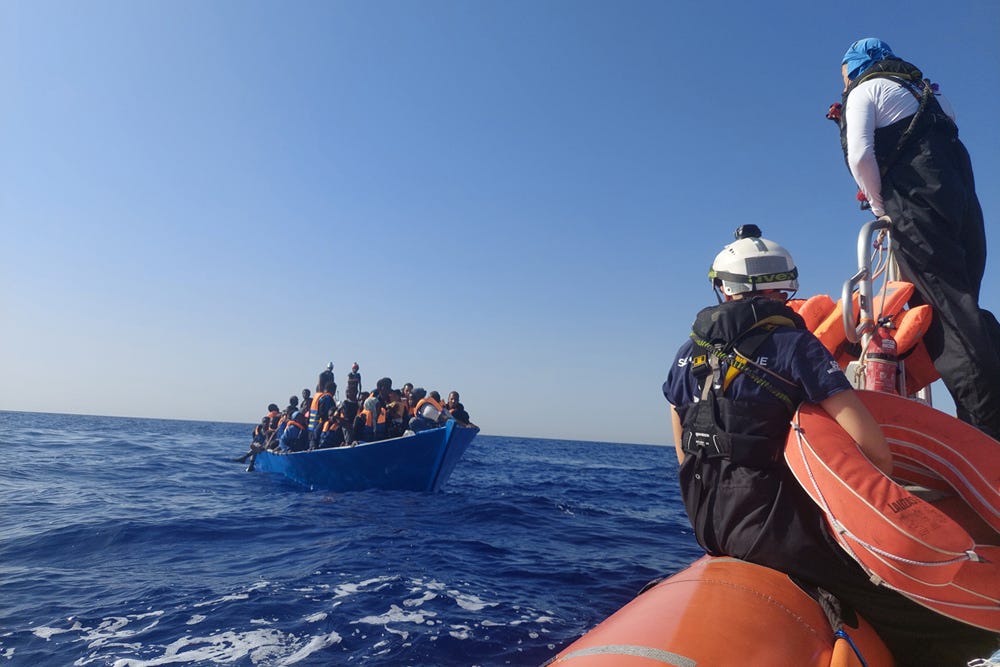
© SOS Méditerranée / Claire Juchat
An exhausting odyssey then began, with terrified men, women and children as well as the crew left in limbo while Italy and Malta both refused to grant safe harbour, ignoring the ship’s multiple requests.
It would take seven days before the search and rescue vessel was allowed to dock in an Italian port.
Frédéric Penard, SOS Méditerranée Director of Operations, told us what happened during those difficult days: “The situation on board deteriorated quickly”, he said. “Tensions started to rise, including suicide attempts and threats to the ship’s crew. Many of the people on board were beyond desperate: they were in agony, mentally and physically. Most of them had suffered sun and fuel burns during the time they spent in open sea, not to mention the horrific mistreatments endured in Libya. Countless told us they had tried to flee Libya several times, been intercepted by the Libyan coastguard and brought back to detention in a never-ending vicious circle. They were terrified that would happen again.”

